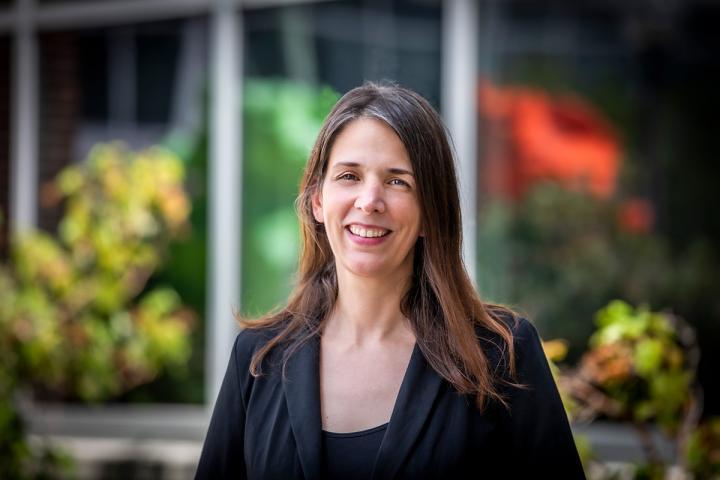
Credit: Photo by Fred Zwicky
CHAMPAIGN, Ill. — Every human cell harbors its own defenses against microbial invaders, relying on strategies that date back to some of the earliest events in the history of life, researchers report. Because this “cell-autonomous immunity” is so ancient and persistent, understanding it is essential to understanding human evolution and human medicine, the researchers said.
Like amoebae, most human cells can transform themselves to engulf and degrade foreign agents in a process known as phagocytosis, said Jessica Brinkworth, a professor of anthropology at the University of Illinois, Urbana-Champaign who wrote the new report with former undergraduate student Alexander Alvarado. And the methods that human cells use to detect, pierce or hack up invading microbes are inherited from – and shared by – bacteria and viruses, she said.
“Every cell has these things and they have this deep evolutionary history,” Brinkworth said. “This means that if you’re going to study humans, you need to accept that immunity is always going to be part of what you’re looking at. And you’re going to have to go deep into evolutionary time.”
The authors reject the notion that the immune system is distinct from other bodily systems.
“Immunity is literally everywhere,” Brinkworth said. “The whole of the organism, from the skin down to the level of the last enzyme floating anywhere in the body, almost all of it is engaged in protection in one form or another.”
For that reason, she suggests that medical approaches to fighting infection that try to tamp down evolutionarily conserved immune responses such as pro-inflammatory pathways are misguided. While it can be useful or necessary to use immune-suppressing drugs against autoimmune conditions or in the case of organ transplants, such drugs do not appear to work against severe microbial infections.
“In the context of severe infections, there have been many attempts to come up with ways of reducing the immune response by throwing a bunch of steroids at it or blocking the body’s ability to detect the pathogen,” Brinkworth said. “But targeting these immune mechanisms that have been around for millions of years is potentially counterproductive.”
In the case of sepsis, which Brinkworth studies, this approach has not been fruitful.
“More than 100 trials of immunomodulatory approaches to sepsis have failed,” she said. “And the one drug that made it to market then failed. Most of these drugs tried to block highly evolutionarily conserved defenses, like mechanisms of cell-autonomous immunity.”
Many immunomodulatory drugs now being tested against the new coronavirus are failed sepsis drugs, she said.
Similarly, anthropologists often fail to consider how millions of years of battle against infections at the cellular level have shaped human genetics, physiology and even behavior, Brinkworth said.
“If you’re talking about human evolution, if you’re in any physiological system, you’re going to have to address at some point how pathogens have shaped it,” she said.
###
Brinkworth also is an affiliate of the Carl R. Woese Institute for Genomic Biology at the U. of I.
Editor’s notes:
To reach Jessica Brinkworth, email [email protected].
The paper “Cell-autonomous immunity and the pathogen-mediated evolution of humans: Or how our prokaryotic and single-celled origins affect the human evolutionary story” is available online and from the U. of I. News Bureau
Media Contact
Diana Yates
[email protected]
Related Journal Article
http://dx.




